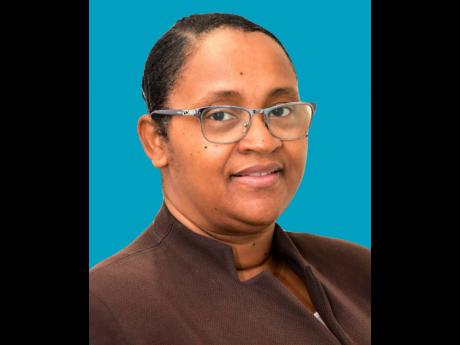CXC flags exam cheats
There was a significant increase in the number of students who attempted to cheat in the May-June sitting of this year’s Caribbean Examinations Council (CXC) exams, the regional agency has disclosed.
The incidents of misconduct ranged from students using unauthorised devices to research questions, taking information into the test centres, sharing information in the exams, and even the impersonating of another candidate, CXC’s director of operations Dr Nicole Manning revealed at a press conference on Tuesday.
“Candidates have to sign to agree… ‘yes this is what happened’. So we are not just making it up, the supervisors, invigilators are not making it up, they (students) are telling you ‘I did this’, as well as they are caught, literally with the phone. One candidate said they were googling the question,” she said.
The increased attempts to undermine the integrity of the exams were observed during sittings of the Caribbean Secondary Education Certificate (CSEC) exams. There were 49 instances recorded, compared to 19 last year.
But there was a decrease in these incidents for students who sat the Caribbean Advanced Proficiency Examinations (CAPE). Only six instances of irregularities were recorded compared to the 17 that were observed last year.
DISQUALIFICATION OR DISBARRED
CXC candidates involved in any irregularity, misconduct or dishonesty in connection with the examination will be allowed to continue the examination unless they interfere with the examination of other candidates. However, they may later be disqualified or barred from entry to future examinations conducted by the council according to the agency’s regulations.
Manning noted that in the instance of impersonation, the candidate was disqualified and barred from sitting CXC exams for two years.
“It’s speaking to a level of ill preparedness for the exam which also is aligned with some of the reasons we would have received in terms of candidates absenteeism,” she said of the attempts at cheating.
There was a five per cent absenteeism rate among students who sat CAPE subjects while the CSEC registered a 6.66 absenteeism rate.
She noted that the highest rates of absenteeism was recorded in visual arts.
While emphasising the importance of fostering integrity among students, Manning deplored how school administrations are sometimes complicit.
“We would have had in the past, issues with premature sharing of information at the centre level and that’s why we are pushing the whole matter of digital,” she said.
Two breaches occurred in Jamaica during the sitting of the CXC May-June 2023 exams. In May, the CSEC Mathematics Paper 2 was leaked and then disseminated to other territories. Weeks later, examination papers for nine CXC subjects were stolen from fireproof cabinets at a school in Jamaica.
However, Manning is optimistic that the regional examination agency’s push towards digital transformation through the use of electronic assessment will increase the security of papers.
Meanwhile, Dr Wayne Wesley, registrar and CEO of CXC, decried the unimpressive pass rates in mathematics and English and stressed the need for more attention to be given to these core subject areas.
DECREASE IN PASSING GRADES
The number of students who received passing grades in these two subjects decreased when compared to 2023. Only 36 per cent of students across the region received passing grades for mathematics, a seven percentage point decrease when compared with last year. Meanwhile, 76 per cent of students who sat English A received grades one to three, a two percentage point decrease when compared with last year.
“It is important for our students to be rounded, but I think it is critical and vitally necessary for us to give greater emphasis on English and mathematics and the competencies to be acquired because these two subjects are the foundation on which anything else can be acquired or learned,” he said.
To this end, he said CXC has already commissioned a team to begin to develop standards for literacy and numeracy. These standards, he said, will incorporate the use of artificial intelligence to design targeted intervention for the development of these candidates.
Wesley noted that this programme will complement what is being offered by education ministries across the region as no one entity will be able to address this challenge.
“The ecosystem of education will have to be addressed from the primary level all the way up to the secondary level,” he said. “It involves…the teachers colleges within the universities, in the preparation of teachers, it involves the provision of resources, it involves the responsible parenting. You have a wide cross section of factors that we will have to give consideration to in order to address this particular concern.”

